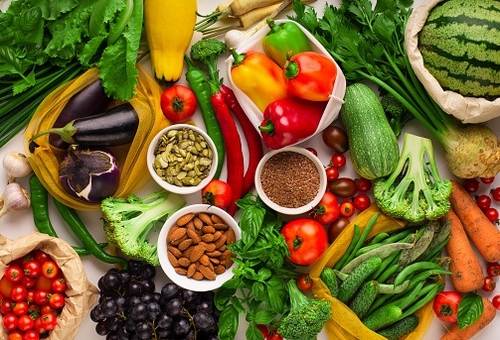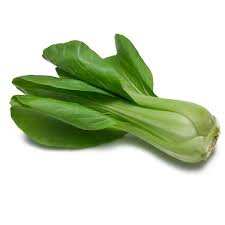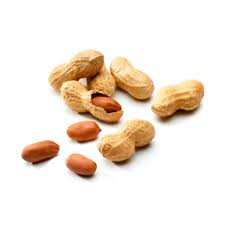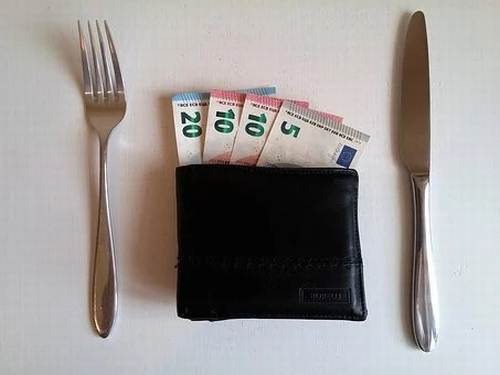Shopping for Cheapest, Healthiest Foods? In the past years we have seen an increasing in the price of healthful foods. The increase has been the most in nutrient-dense foods. This affects many people as they seek to adopt a healthier lifestyle. We have compiled a top ten list of the healthiest and cheapest foods.
The Top 10 Cheapest, Healthiest Foods
Here is a list of foods that are highly nutritious, cheap, and easily available.
1. Watermelons
This fruit has many sweet benefits besides being free from fat and cholesterol. It has a 92% water content and can quench any thirst. It has a significant amount of vitamin A and C, potassium, fiber content, and lycopene (this nutrient also gives the fruit its red colour). Many studies show that watermelon is therefore very good for the heart, nervous system, and cancer.
Suggested Recipe: Watermelon Fruit Juice
2. Bok Choy
Bok choy is part of cabbage family and can be an ingredient in soups, stews, and stir-fry dishes. It is another year round produce. It has many health benefits. Studies show that it aids in healthy digestion, reduce the risk of certain cancers and cataracts, and lowers levels of estrogen. It is high in vitamin A, vitamin C, beta carotene, calcium and dietary fiber. It has a low fat and calorie content. A cup will also give you 158mg of calcium (16 percent of your daily recommended requirement), 20 calories, 0 fat and 3 grams of fiber.
Suggested Recipe: Bok choi and rice
3. Mango
Mangoes are a seasonal fruit. It is rich in amino acids, vitamin C and E, beta carotene, niacin, flavonoids, calcium, iron, magnesium and potassium. A medium sized mango packs about 57mg of vitamin C, 1584 IU (25% daily value) of vitamin A, and many other vitamin and minerals. This makes mango a favored antioxidant that can also help prevent arthritis and boost your immune system.
Suggested Recipe: Mango Sorbet
4. Tomato

The tomato is a versatile fruit, it can be eaten raw as in salads, or cooked to enhance the flavor in foods. Studies show that tomato can prevent cancer, heart disease. and reduce the risk of macular degenerative disease. one medium tomato contains 22 calories, 1.08 g proteins and 1.5 grams of fiber. Tomato also has high levels of lycopene, one of the strongest carotenoids, which acts as an antioxidant.
Suggested Recipe: Tomato Choka
5. Lentils
Lentils is effective in lowering cholesterol because of its high content of fibre. It also helps prevent blood sugar levels from rising rapidly. Lentils contains high levels of protein, dietary fiber, folate, vitamin B1, and minerals. As a result is is considered a complete protein.
Suggested Recipe: Lentil loaf
6. Spinach
Spinach is considered a super food because it is loaded with calcium, folic acid, vitamin K, and iron. It also contains vitamin C, fiber and carotenoids. Spinach can help protect against heart disease and improve eyesight. It loses its potency over time, even when refrigerated and should therefore be eaten when brought.
Suggested Recipe: Spinach lasagna
7. Peanut
Research shows that peanuts can help children and adults meet their daily requirements for nutrients often lacking with just one serving of peanuts. These nutrients: vitamin A, vitamin E, vitamin C, calcium, magnesium, potassium and fiber are generally lacking in our diet. Even though peanuts are high in fats it is unsaturated. One ounce of peanuts has 166 calories, 14 grams of fat and 2 grams of fiber.
Suggested Recipe: Peanut punch
8. Oatmeal
Oatmeal is considered a breakfast food. Studies show that oatmeal lowers cholesterol, the risk of heart disease, and reduce high blood pressure. It can also help you control your weight. Oatmeal contains vitamins, minerals and antioxidants. It is also a good source of protein, complex carbohydrates and iron. This food is convenient in the list as it is easy to cook.
Suggested Recipe: Oatmeal muffins
9. Bananas
This sweet and creamy fruit is versatile and can be enjoyed by everyone. It is also a great snack before a workout. Bananas are available year round. They are an excellent source of potassium (422 mg per medium banana). They also have vitamin B6, vitamin C, manganese, and folate. They provides traces of calcium, zinc, copper, iron, vitamin E, and selenium. Bananas are also a good source of prebiotics – undigestible sugars.
Suggested Recipe: Banana Cheesecake
10. Carrots
Carrots are rich in beta-carotene, a vitamin A precursor. It therefore can reduce the risk of certain cancers, promote a healthy skin, and good night vision. It can also boost the immune system and lower blood cholesterol levels. It is also rich in fiber. Carrots should not be overcooked as the hydro-soluble vitamins may be lost in the water.
Suggested Recipe: Carrot cake
Don’t forget to leave your comments about this article on the 10 Cheapest, Healthiest Foods in the comment box below.
Suggested Readings:
Regimens: Eat Your Vegetables, but Not Too Many
You may also like:











